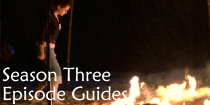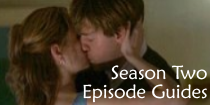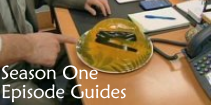 Blackwell Publishing has recently released a book entitled “The Office and Philosophy – Scenes from the Unexamined Life”. The book explores philosophy found within the BBC and NBC versions of “The Office” and was edited by J. Jeremy Wisnewski.
Blackwell Publishing has recently released a book entitled “The Office and Philosophy – Scenes from the Unexamined Life”. The book explores philosophy found within the BBC and NBC versions of “The Office” and was edited by J. Jeremy Wisnewski.Political correctness, sexual harassment, business ethics, office flirtation, and humiliation are hot button points that show up in this snapshot of life. Even as it captures something of the human condition, “The Office” put the ‘fun’ in dysfunctional. “This is philosophy that is meant to introduce you to, and help you understand, issues in a way that is as enjoyable as the show itself.”
“I laughed and laughed and laughed… and then I realized I was reading a different book. And then I read this one. It’s pretty good, too.” – Oscar Nunez
J. Jeremy Wisnewski is an Assistant of Philosophy at Hartwick College. He is the author of “Wittgenstein and Ethical Inquiry: A Defense of Ethics as Clarification” (2007) as well as the editor of “Family Guy and Philosophy” (2007). According to his biography his next project is to play Michael Scarn in a new production of “Threat Level: Midnight”. (No, not really.) Recently I was able to sit down for a conversation with Jeremy about the book. Enjoy!
ScrantonBranchOffice: Hey, how are you Jeremy?
J. Jeremy Wisnewski: I’m good, how are you?
SBO: I’m doing well thank you.
SBO:This is a great book as far as philosophy goes in general, but what made you and the other writers decide to gear it on The Office?
JJW:From moment one, when I started seeing the promos for The Office, I was immediately intrigued. I saw the US version first. When I started watching it, both the US version and later on the British version, I just knew there was something there. It seems as though the show is really capturing something universal. I think that is evidenced by the fact that there’s a US version, a British version, a German version, a French version and a Canadian version. All of these shows are tapping in to a lot of things, but one of the things they’re tapping into is the struggle for meaning in advanced industrial nations. That’s a large way of saying, I guess, that work stinks and it’s very difficult to get any meaning out of what you do. It’s very difficult to be a paper pusher.
Continue Reading...






































Blackwell Publishing has recently released a book entitled “The Office and Philosophy – Scenes from the Unexamined Life”. The book explores philosophy found within the BBC and NBC versions of “The Office” and was edited by J. Jeremy Wisnewski.
ReplyDeletePolitical correctness, sexual harassment, business ethics, office flirtation, and humiliation are hot button points that show up in this snapshot of life. Even as it captures something of the human condition, “The Office” put the ‘fun’ in dysfunctional. “This is philosophy that is meant to introduce you to, and help you understand, issues in a way that is as enjoyable as the show itself.”
“I laughed and laughed and laughed… and then I realized I was reading a different book. And then I read this one. It’s pretty good, too.” – Oscar Nunez
J. Jeremy Wisnewski is an Assistant of Philosophy at Hartwick College. He is the author of “Wittgenstein and Ethical Inquiry: A Defense of Ethics as Clarification” (2007) as well as the editor of “Family Guy and Philosophy” (2007). According to his biography his next project is to play Michael Scarn in a new production of “Threat Level: Midnight”. (No, not really.) Recently I was able to sit down for a conversation with Jeremy about the book. Enjoy!
ScrantonBranchOffice: Hey, how are you Jeremy?
J. Jeremy Wisnewski: I’m good, how are you?
SBO: I’m doing well thank you.
SBO:This is a great book as far as philosophy goes in general, but what made you and the other writers decide to gear it on The Office?
JJW:From moment one, when I started seeing the promos for The Office, I was immediately intrigued. I saw the US version first. When I started watching it, both the US version and later on the British version, I just knew there was something there. It seems as though the show is really capturing something universal. I think that is evidenced by the fact that there’s a US version, a British version, a German version, a French version and a Canadian version. All of these shows are tapping in to a lot of things, but one of the things they’re tapping into is the struggle for meaning in advanced industrial nations. That’s a large way of saying, I guess, that work stinks and it’s very difficult to get any meaning out of what you do. It’s very difficult to be a paper pusher.
So, one way to think about the characters is that they’re all struggling, in one way or another, to figure life out – to try to make themselves a life that has some kind of significance. So, Jim pursues Pam, Pam tries to find some kind of relationship, Dwight inflates himself by being Assistant Regional Manager rather than Assistant to the Regional Manager, they play pranks on each other. So I think one of the big themes that really pervades all versions of the show is this idea that meaning in life is not particularly easy to find. And their explorations of that show us not only the problem, but in hilarious ways, some of the solutions.
SBO:I think the hilarity is what’s most important. We can’t take ourselves too seriously.
JJW:Oh yeah. In Shakespeare there’s the idea of comic relief. In a tragedy there has to be some moments where you ease up on your audience or they’re just going to get overwhelmed. And in a way you can view The Office as comedic relief for life. It’s a way of looking at things that are sometimes a little too close to our daily activities. It’s looking at it in a way that’s allowing us to deal with it, to accept it and to think about it – to investigate it.
SBO:In the beginning of the book you do mention the fact that even though there many different versions of The Office, that you chose to focus on the US version as well as the British, BBC, version. It’s a great apology to both of them and the rest of the world. Why did you select just the US and British versions? Or why not just the US?
JJW:I felt obligated to have the BBC version because, as the fans know, the show is the brain child of Ricky Gervais and Stephen Merchant. To see Gervais in the BBC original – he’s just so brilliant. The first few episodes of the US version are basically the same of the UK version. Thankfully the US version veered off and went and became its own thing – this tremendous show. So part of it has to do with the originality of the British version.
Now as far as why not including the German and French versions – well , my French is really bad. My German – I could probably pull it off, but there’s only so much space in a book and frankly, I think that all the major themes are hit in the UK and the US version.
SBO:I think the human levels explored in both of them are just wonderful things to behold.
JJW:Absolutely. I think that aside from the general issue of the work place, I think that we can learn a lot about being human and doing it well, in a way, from the individual characters in the office. I think I’ve learned a lot, as strange as it may seem, and a lot of people are going to be shocked by this maybe, but I think I’ve learned a lot from Toby. I mean, I learn what not to do from Dwight all the time, and from Andy as well, but there’s something about the way Toby calmly handles things, even though Toby’s not a particularly likeable kind of guy, I don’t know, he’s just kind of plain, but still feel like I’ve learned a tremendous amount from him. And also, surprisingly, I think I’ve learned a lot about what a good human being is from Michael Scott. Only in a couple of episodes though. Normally, he’s botching it up tremendously. But the way he interacts with Pam at her art show, and how he talks about how business should be conducted – it’s all about human relationships. There are these moments when his humanity shines through and he just seems like a really decent person. Although, admittedly, those are just moments. Most of the time it doesn’t shine through. Even though he tries to do the right thing – he fails miserably.
SBO:Maybe we could learn about the way we should be by looking at the way Michael wants to be?
JJW:Yeah, I think that’s right. Occasionally, he gets to be that way. What’s interesting there is that it’s just by luck. I think that actually says something kind of profound about our condition. We can know what the right thing to do it, we can want to do the right thing, but still there’s a little something extra that’s required to bring us there. That thing might very well be luck.
SBO:Previous to working on this book, you worked on a book about Philosophy of Family Guy. How do Family Guy and The Office connect for you?
JJW:The two books are a part of a larger series – the aim of which is to fix the public relations problem that philosophy has had for 25,000 years. We want to show folks that philosophy is something that is relevant, that’s fun, that isn’t something that dead white guys in togas are doing under trees. In that respect, we take pieces of popular culture, things that we’re true fans of, and we bring the tools of philosophy to them and we bring them to the tools of philosophy. That overarching project is really the connection of Family Guy and The Office for me, I just happen to love both those shows. I’m chronically philosophical so I can’t help but watch these shows and do my thing.
SBO:You are the editor of this book and you also wrote the opening segment entitled “Screws and Nails” and you also co-wrote then final segment called “Michael Scott is Going to Die”. Could you tell us about the “We’re Screwed” view of life philosophy you mention in the first part of the book?
JJW:The essential view is that there are lots of ways to get things wrong and it looks like there is only one or a few ways to get things right. The idea that you could possibly not mess up anything, in a given day, seems abysmally small. And so the idea of the chapter is that no matter what you do, you’re going to do something wrong. You can kind of see that in the way that Michael Scott behaves. But nevertheless, I think despite that your bound to do things wrong – occasionally, with some luck, you can do things right.
SBO:“Michael Scott is Going to Die” is great because you touch on us all dealing with our own mortality through Michael Scott.
JJW:Yes. So, there’s a big literature on this phenomena of death denial and the way human beings try to escape their own mortality through narratives and activities and culture and so forth. There are two episodes of The Office where I think we see Michael Scott in full-on, full-fledged, death denial. I actually did a course last year on death and thinking about the way we try to deal with it. Watching these couple episodes, it’s just so painfully obvious, all these classic things in the literature that people do deny their own mortality, seeing Michael do them. It’s a co-authored piece which I authored with a student. She wrote a paper for me and it was tremendously good, one of the best papers I’ve ever received from a student. I said, “I’m working on this book. Maybe if we worked together we could get this up into something publishable”. And we started working on it, going back and forth, seeing how death denial was displayed in The Office – displayed in a way that lets you deal with it. Let’s face it, death is not a happy subject. It’s very depressing. but the way The Office deals with it brilliantly lets you look at it. Essentially, that’s what the last chapter does.
SBO:The appendices in the back of the book are great. Can you tell us about Appendix 2?
JJW:The title of the appendix is “Question: What do you need to know about Dwight K. Schrute?” Then, for the next several pages you get facts. Fact: Dwight K. Schrute loves beets, or whatever.
SBO:You can almost hear Dwight saying these lines as you read it.
JJW:Right! What we did is, we went through all episodes and not only the times Dwight actually says “Fact” and lists something, but also, these strange things that we learn about Dwight along the way like that the Schrutes always get married in their graves or that the Schrutes have very thirsty babies. We’ve compiled all that in the back of the book. It’s a fun read.
SBO:As the shows continues to grow, are there any hopes or plans to update this book as the show plugs along?
JJW:Well, I think that would be a fabulous thing to do. Honestly and perhaps sadly, it all depends on the market. Maybe if enough people buy it we could even do a volume two.
SBO:There’s the old joke, I went to a fight and a hockey game broke out. The way that this book reads you sit down to read a funny book about The Office and by the time you’re done with it, you’ve really explored philosophy. What would your dream Utopian thing be that Office fans would take away from this book?
JJW:In a way, you just said it. They would come away from the book, first of all, having enjoyed it – that’s crucial. It’s a book for fans by fans. Also, that they would learn a little philosophy and hopefully want to go on and explore some more.
SBO:The opening dedication of a book is usually skipped over by readers, but I have to tell the fans that they need to read it. It’s a beautiful letter that you wrote to Michael Scott and David Brent. It’s about how we need you and you need us – philosophy and paper. It grabs the readers right away with your ideas on philosophy as well as the comedy of The Office.
JJW:I appreciate that - that was exactly the aim.
SBO:Ok, I’m going to tweak our bonus question a little for you. I want to know your philosophy about this: If you met someone who was stranded on a desert island and had never seen American television, what five shows would you show them?
JJW:I would show them Seinfeld, The Office absolutely. Those two shows are TV at its best. I’m going to have to say Family Guy. I would probably show them Saturday Night Live and I would probably also show them the Andy Griffith Show.
SBO:Jeremy I want to thank you very much for your time this morning.
JJW:Thanks very much for having me, it’s been a pleasure.
A HUGE thanks to Jeremy for his time! You can get "The Office and Philosophy - Scenes from an Unexamined Life" at most major book stores or click HERE to check it out on Amazon.